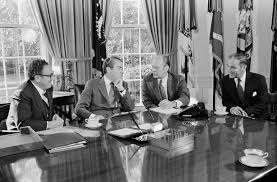How to Get Involved in US Politics: A Beginner’s Guide
Getting involved in US politics may seem challenging, especially for beginners, but it’s easier than you think. Understanding the political process and knowing how to engage with it allows you to make your voice heard and create change. This guide will walk you through the essential steps to get involved in politics, using simple language to make everything clear.
Understand the US Political System
To get involved in politics, the first step is understanding how the system works. The United States has a democratic republic, which means citizens elect representatives to make decisions on their behalf. These representatives serve at various levels, including federal, state, and local governments.
At the federal level, there are three branches of government: the executive (President), the legislative (Congress), and the judicial (Supreme Court and other courts). The President leads the country and enforces laws. Congress, made up of the Senate and the House of Representatives, creates laws. The judicial system interprets the laws and ensures they are constitutional.
Understanding the structure of government helps you see where you can make a difference. Voting for local, state, and national leaders gives you the power to influence decisions that affect your life.
Register to Vote and Stay Informed
Voting is one of the most direct ways to participate in US politics. To vote, you need to register. Each state has its own rules for voter registration, so check your state’s website to see how to sign up. Some states allow you to register online, while others require you to visit a government office.
After registering, make sure you stay informed about political issues, candidates, and policies. Reading the news, watching debates, and following trusted political commentators can help you understand what’s happening in the country. Avoid fake news by choosing reliable sources that provide balanced information.
When election time comes around, be prepared to vote for the candidates and policies that align with your beliefs. Participating in both primary elections, where political parties select their candidates, and general elections is important.
Join a Political Party or Movement
Another way to get involved in politics is by joining a political party or movement. The two major parties in the United States are the Democratic Party and the Republican Party, but there are also third parties, such as the Libertarian and Green parties. Each party has its own platform, which outlines its beliefs on issues like healthcare, education, and the economy.
If you identify with a party, you can become a member and attend local meetings, volunteer for campaigns, and participate in events. By joining a party, you can help shape its direction and work toward policies you support.
If you don’t want to join a political party, you can get involved in movements or organizations that focus on specific causes, such as climate change, human rights, or economic justice. These groups often organize protests, advocacy campaigns, and educational events.
Volunteer for Campaigns

Campaigns are the backbone of elections. Candidates rely on volunteers to spread their message, encourage people to vote, and organize events. Volunteering for a campaign is a great way to gain hands-on experience in politics.
There are many ways to volunteer for a campaign. You can knock on doors to speak with voters, make phone calls to encourage people to vote, or help organize campaign events. Some campaigns need help managing social media or fundraising. You can choose a role that fits your interests and skills.
Volunteering also allows you to meet like-minded people and network with political leaders. It’s a valuable experience if you’re interested in pursuing a career in politics or advocacy.
Attend Town Hall Meetings and Public Forums
Town hall meetings and public forums give you the chance to meet elected officials, ask questions, and share your views. These events are often held by local, state, and federal representatives to connect with their constituents. Attending town halls lets you voice your concerns directly to decision-makers and learn more about the issues that matter to your community.
To find town hall meetings, check your representative’s website or follow them on social media. Prepare a question or statement before you attend, and don’t be afraid to speak up. Engaging in public forums helps you stay informed and involved in the political process.
Run for Local Office
If you’re passionate about making a difference, consider running for local office. Local government positions, such as city council, school board, or county commissioner, have a big impact on your community. These roles allow you to make decisions on important issues like public safety, education, and city planning.
Running for office requires commitment, but you don’t need to have a background in politics to get started. Many local officials are regular people who care deeply about their communities. You’ll need to gather support, file paperwork, and campaign for votes. It’s a rewarding experience that can lead to meaningful change.
Use Social Media to Advocate for Change
Social media platforms like Twitter, Facebook, and Instagram are powerful tools for political advocacy. You can use social media to raise awareness about issues, share information, and connect with others who care about the same causes. Posting about topics that matter to you can spark discussions and encourage others to get involved.
If you have a large following, you can amplify your voice and reach a wider audience. You can also use social media to follow political leaders, journalists, and activists, keeping you informed about current events and opportunities for engagement.
Make sure to fact-check the information you share and avoid spreading misinformation. By using social media responsibly, you can contribute to meaningful political conversations.
Contact Your Elected Officials
Elected officials represent you, so it’s important to let them know your thoughts on the issues. You can contact your representatives by phone, email, or letter to express your opinion on specific policies or legislation. Most elected officials have staff who read and respond to messages from constituents.
When contacting an official, be clear and respectful. State the issue you’re writing about, explain your position, and ask for their support or opposition. Personal stories and examples can make your message more powerful. Your voice can influence how officials vote on important issues.
Support Advocacy Groups and Nonprofits
Advocacy groups and nonprofits play a significant role in shaping public policy. These organizations work to promote specific causes, such as environmental protection, social justice, or healthcare reform. By supporting or joining these groups, you can contribute to efforts that align with your values.
Advocacy groups often organize petitions, rallies, and educational campaigns to influence lawmakers and raise public awareness. You can volunteer your time, donate money, or participate in their events to support their mission. Many nonprofits also offer internships or training programs for those interested in learning more about advocacy work.
Stay Engaged and Educate Others
Getting involved in politics is an ongoing process. Staying engaged means continuing to learn about new issues, following elections, and participating in political activities. Encourage your friends and family to get involved, too. Educating others about the political system and the importance of civic participation can create a ripple effect, leading to a more informed and active community.
By staying involved, you help strengthen democracy and ensure that your voice—and the voices of others—are heard.
In conclusion, getting involved in US politics is not as hard as it may seem. By understanding the political system, registering to vote, joining movements, volunteering, and using social media to advocate, you can make a difference. Whether you run for office or simply stay informed and active, your participation is key to shaping the future.










